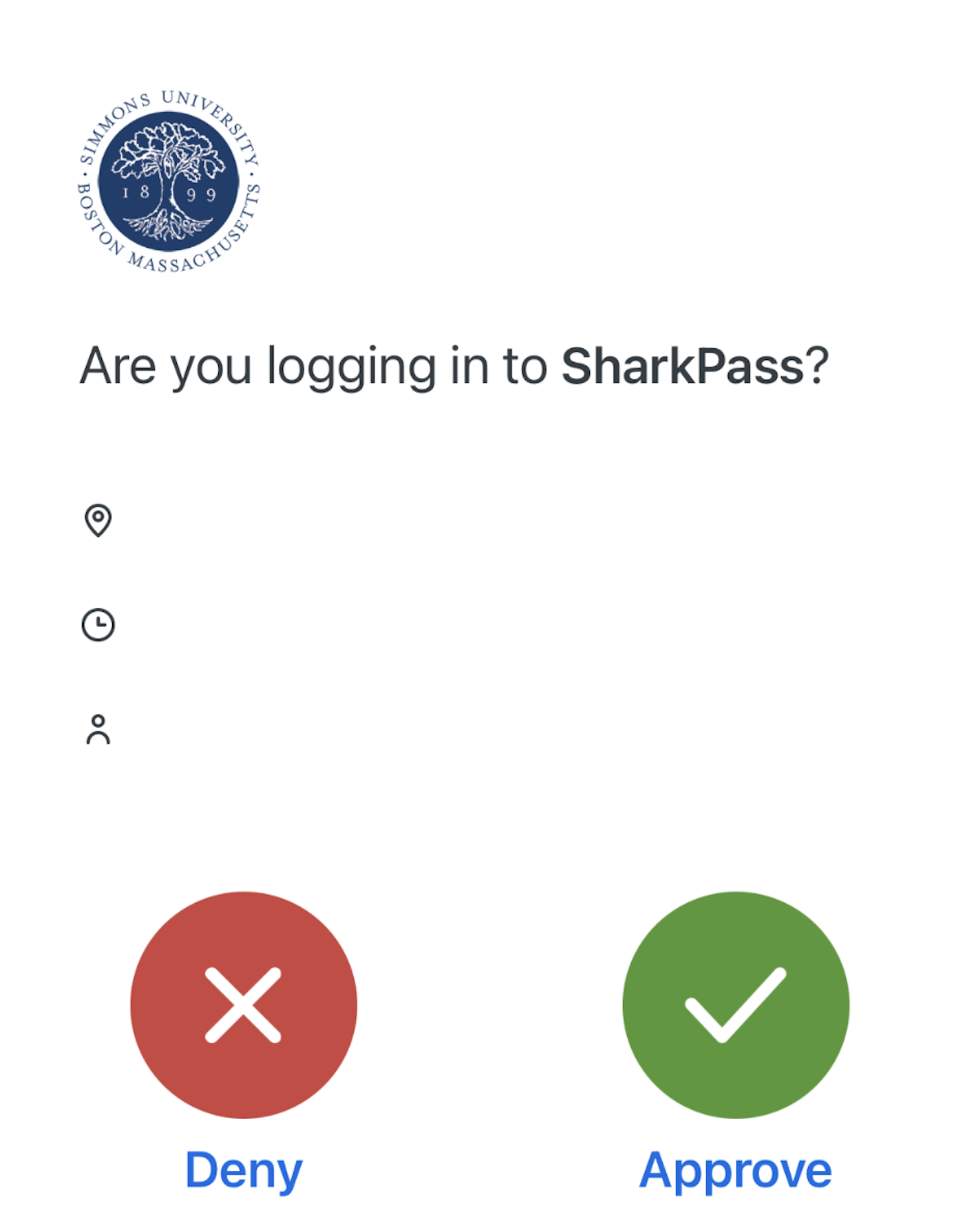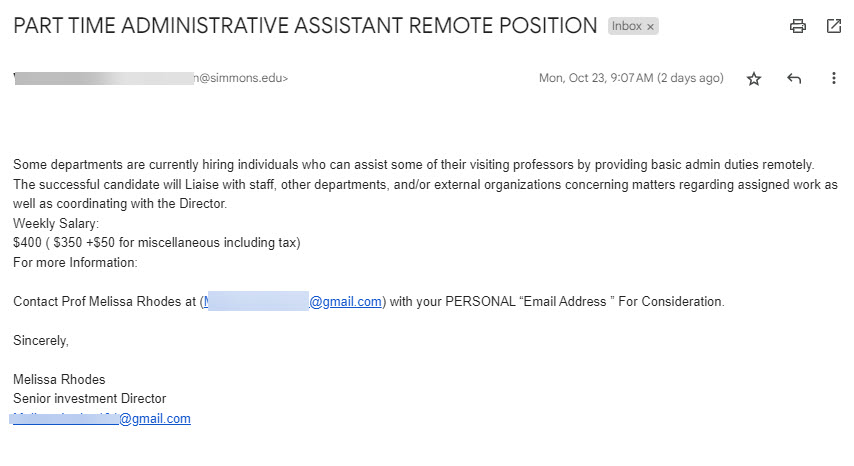This week marks the start of our Printer Fleet Refresh at Simmons, as we begin relocating and reducing printers across campus. This move, a part of our strategy to optimize printing resources, will see a 50% reduction in devices, focusing on high-need areas and incorporating advanced features like ‘Tap to Print’ and enhanced scanning. For any queries or assistance, please contact the Technology Service Desk. Thank you for your support during this transition!
Category Archives: TechNews
Printer Fleet Refresh Coming Over Winter Break
As we head towards winter break, Technology will be refreshing and updating the printer and multifunction device (MFD) fleet across the campus. This refresh is part of an ongoing effort to right-size and optimize our printer resources.
Over the past few years, we have seen a decline in printer utilization as more work and learning has shifted online, especially since the start of the pandemic. In addition, with the closure and relocation of some campus spaces, we no longer require the same number of printers in all locations.
The upcoming refresh will reduce the total number of printers and MFDs by approximately 50%. The remaining devices will be strategically placed in high-traffic public locations and departments with the highest continuing need.
Despite the overall reduction, the new printer fleet will be equipped with technology to improve the printing experience:
- Tap to Print – Students and employees will be able to print from anywhere on campus by logging into CampusPrint or printing from a Simmons managed computer to the following print queues:
- Campus Print BW SingleSided
- Campus Print BW DoubleSided
- Campus Print Color SingleSided
- Campus Print Color DoubleSided
- Enhanced scanning and copying features – Updated MFDs allow scanning directly to Google Drive.
For large print, copy, or scan jobs, we recommend utilizing the Copy Mail Center in the Lower Level of the MCB. The Copy Mail Center specializes in high-volume, high-quality jobs at affordable prices.
Please let the Technology Service Desk know if you have any questions about the upcoming changes or need assistance with printing. We hope these printer improvements will lead to an even more efficient and positive printing experience across Simmons!
Phishing, Rogue Sharkpass/DUO pushes, and Job scams

Some of you may have received a Phishing Email with the subject “A file has been shared with you”, or something similar. This email “appears” to be coming from someone within Simmons or even from an external email address. Clicking the link brings the victim to a web page that looks like an official-looking webpage and asks them to enter their username and password. Once that information has been entered on the webpage it is captured by the cyber criminals.

Almost immediately following, the cybercriminals attempt to login to Simmons’s email and systems with the stolen credentials and the victim will receive a Duo authentication request known as a “Rogue Push”, meaning one that was not requested. If the victim approves the Duo request, then the cybercriminals are allowed in. Think before you click!
The Job Scam is intended to steal money from the victim in one of two ways. The first is that they ask for personal information plus a bank name. They will then send an official looking email from that bank asking the victim to confirm details and maybe to reset a PIN code. The scammers will try to use this information to login to the bank account and withdraw money. The second way is to send the victim a paycheck in advance with instructions to use that check to purchase supplies or a computer from their vendor. The victim purchases these items before the bank has time to clear the deposited check. The fake check will bounce and the victim is left responsible for the purchases. Other variations of this scam have involved sending cryptocurrency such as bitcoin to the scammers.

As phishing and job scams targeting higher education persist, vigilance is key. Carefully inspect unsolicited emails and do not click links or provide information without verifying legitimacy first. Report suspect message as phishing in Gmail. Research employers thoroughly when job hunting and avoid requests for upfront fees or personal details. Never provide banking information. Stay alert and contact the IT help desk with any online safety concerns. Using caution and common sense are our best defenses against those looking to take advantage.
Simmons Moodle Update
![]() We are excited to announce a significant upgrade to our learning management system, Simmons Moodle, which will take place on January 8, 2024. The transition to Moodle 4.1 represents a substantial improvement in our online learning experience, offering enhanced features and a more user-friendly interface.
We are excited to announce a significant upgrade to our learning management system, Simmons Moodle, which will take place on January 8, 2024. The transition to Moodle 4.1 represents a substantial improvement in our online learning experience, offering enhanced features and a more user-friendly interface.
Key benefits of this upgrade include:
Modern User Interface: A new sleek and intuitive interface that will make navigation and course management more straightforward.
Improved Mobile Compatibility: Increased responsiveness on mobile devices, allowing for a seamless learning experience on smartphones and tablets.
Enhanced Accessibility: Better support for accessibility standards, ensuring that all community members can access and benefit from online resources.
Streamlined Assignment Submission: Students will find it easier to submit assignments, and instructors will have a more convenient grading process.
Advanced Analytics: Improved data analytics tools, helping instructors and administrators make data-driven decisions to support student success.
There will be a scheduled downtime on the morning of January 8th, 2024, to ensure a smooth transition. We anticipate that Moodle will be unavailable for four to six hours. We apologize for any inconvenience this may cause and appreciate your understanding.
We are committed to providing the best online learning environment for our university community, and this upgrade is a significant step towards achieving that goal. To that end, we will continue to update the Simmons community with details about specific improvements directly through the Moodle platform. In addition, the Center for Faculty Excellence will be providing instructor workshops to further introduce new key features on January 10th at 11 a.m., and January 11th at 2 p.m.
Thank you for your cooperation and patience as we work to enhance your Moodle experience. If you have any concerns or questions, or would like to be considered as part of a small pilot group to provide early feedback about the new Moodle experience, please don’t hesitate to contact our Moodle Support team at [email protected].